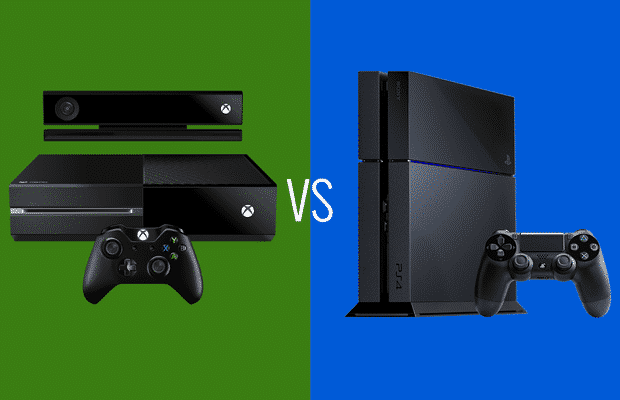The Groundbreaking OpenAI Five Experiment
In 2018, AI research company OpenAI shocked the Dota 2 world by unveiling a team of five bots named OpenAI Five that had reached human professional level play after training for ten months through self-supervised learning. This marked a major milestone in AI versus human competition within esports. The bots faced off against top Dota 2 pro player Blitz and his team in a demonstration match that garnered widespread media attention across technology and gaming publications.
Training Through Self-Play
OpenAI developed a novel approach called self-play, where the bots would face off against each other in matches to continuously improve. This allowed the bots to develop strategies and counter-strategies without any human intervention. By playing millions of matches against itself, OpenAI Five was able to surpass all previous AI and reach a skilled level of play. However, their training methodology focused only on optimizing strategy and tactics within the constraints of their limited hero pool and rule set.
The Match Had Significant Restrictions
While impressively skilled, the match between OpenAI Five and Blitz’s team had several restrictions that simplified the Dota 2 experience. These limitations prevented a true test of the bot’s abilities against top pros in a standard match environment.
Limited Hero Pool With Low Ceilings
Only five heroes with relatively low mechanical ceilings were allowed in the match - Crystal Maiden, Dark Seer, Drow Ranger, Jakiro, and Legion Commander. This narrowed strategic diversity and prevented skill-intensive micro-managing of illusion or summon based heroes.
No Items For Invisibility, Illusion, or Summon
Key active and passive items that provide invisibility, illusion, or summon abilities were disallowed. This stripped away an important strategic dimension around confusing or outmaneuvering opponents.
Simplified Rosh Pit Fights and Objectives
The strategic importance of Rosh fights and complex objectives around the Rosh pit were removed by not including Roshan or mechanics around the pit area.
A Limited First Victory in Controlled Conditions
While the bots demonstrated skilled team-based strategy and tactics, their victory must be viewed within the narrow context created by the match restrictions. OpenAI Five had only mastered a very small slice of the full Dota 2 game. Against top pros in a standard match, the limited hero pool and simplified rules would have placed the bots at a large disadvantage.
Not Proven in Standard Complexity
Without demonstrating the ability to strategize and adapt across the full breadth of heroes, items, objectives, and metagame, OpenAI Five had not proven it could truly compete with human pros in Dota 2’s standard high complexity.
Average Humans Could Overpower in Reality
It is very likely that even an average skilled human pro team would crush the bots if the restrictions were removed and the full game complexity was unlocked in a real competitive match environment.
Lack of Strategic Drafting and Meta-Understanding
One dimension the bots had not mastered was strategic drafting and understanding the constantly evolving metagame and counter-strategies between teams.
Limited to Single Push Strategy
Due to their narrow training, OpenAI Five had only developed skills around a limited push composition using their confined hero pool. They lacked versatility in their strategic approaches.
Unable to Counter-Draft Opponents
Without a wide grasp of heroes, items and team combinations, the bots were not able to intelligently counter an opponent’s draft or strategy through flexible drafting of their own.
Psychological and Entertainment Aspects Elude Bots
While powerful strategically, the bots were missing important psychological and entertainment dimensions that make high-level esports compelling to both players and viewers.
No Ability to Employ Deception
Human pros innovate through strategic deception, risky playmaking and surprise tactics. The bots lacked any ability to engage in psychological mindgames, feints or unexpected “cheesy” tactics against opponents.
Games Lack Exciting Skill Expressions
For casual viewers, the matchup lacked the potential for flashy highlight reel plays through skill combos, outplays or multi-hero wombo combos due to the restricted hero pool and simplified rules. Large scale teamfight micro was not possible.
Rapid Advancement but a Long Road Ahead
While OpenAI Five marked unprecedented progress, the analysis showed many facets of Dota 2 remain out of reach of even the most skilled AI systems today. However, the rate of advancement is increasing.
Technology Progressing Quickly Each Year
Since OpenAI Five was first unveiled, generative models like GPT-3 have achieved new levels of language mastery. Progress in game-playing AI is accelerating rapidly as well.
Within a Decade, Possibly on Par with Pros
If the pace of improvement continues unfettered, most experts predict that within 10 years, human-level general game agents may be possible and capable of competing with top pros even in the complexity of Dota 2.
For Now Though, Humans Reign Supreme
However, as the analysis of OpenAI Five showed, even with all resources of a large company like OpenAI behind it, today’s AI has not reached a stage where it can truly match the full versatility and meta-mastery exhibited by elite Dota 2 teams and players. Humans remain dominant - for the time being.
In Closing - An Exciting Beginning Warranting Continued Innovation
While still in its early stages, the OpenAI Five project proved highly impactful, generating excitement around the potential for superhuman AI. However, the analysis also revealed the significant gaps that remain before bots can truly compete with top pros across all areas of high-level competition. Continued innovation will be required to further develop bots capable of tackling Dota 2’s full complexities as seen in major tournaments. The clock is ticking as AI development marches forward at a rapid pace. Only continued progress will show if machines can eventually dethrone humans as the dominant force in one of esports’ most sophisticated titles. For now though, the victory goes to our human players and strategists.

